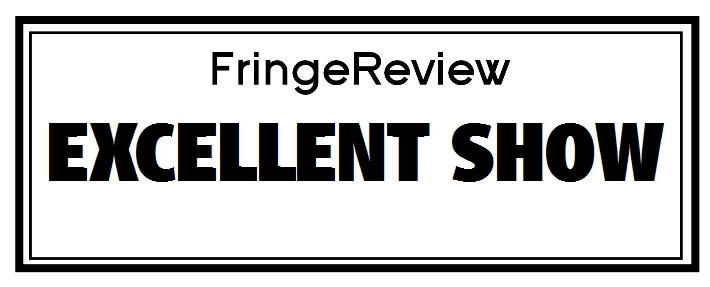Edinburgh Fringe 2018
Low Down
“We’re Not There” is the repeated refrain used by Colombian artist Miguel Hernando Torres Umba in the guise of a flashy, sequinned game show host to justify why we don’t need to care about the environmental damage, social impact and disgusting profits going to the most unscrupulous of people from the cocaine industry. Of course, that’s just Stardust’s ironic representation of a view held by many drug-taking weekend warriors. Umba cares very much in fact, and he thinks we should too.
Review
The cocoa plant has long been considered sacred by indigenous cultures in South America. Through a long and convoluted history which encompasses colonisation, scientific discoveries and corruption, it has been used as a cure-all wonder drug for physical maladies, a psychiatric medication, an ingredient in the soft drink Coca Cola and finally a popular party drug, earning itself the dubious title “the plant that kills”. Sound like a boring history lesson? Blackboard theatre employs just about every element of live performance available to them, from direct address to movement to video projection to audience participation, to make sure this hour-long theatrical Ted Talk is anything but boring.
Umba is used to being tainted by the commonly held stereotype, perpetuated by Trump’s rambling descriptions of “bad hombres” and Netflix’s glamorisation of certain historical figures in the show Narcos, that everybody from South America is involved in the drug trade. Particularly the idea that all Colombians deal in cocaine. He’s repeatedly stopped at airports whilst travelling on a Colombian passport. He wears the stigma like a mark on his hand. Umba says it’s true that growing up in Colombia, you can’t avoid knowing about the drug and the industry that surrounds it. But, he tells us, despite this he’s never tried cocaine.
Umba is a charming presence, speaking directly to the audience with a frankness that makes you feel like he is telling this story for the first time. The only sections which can feel constructed are the frankly unnecessary exchanges with his technician. The writer has left boxes which now sit with selected audience members, we’re told, and in order to keep the show fresh, Umbra doesn’t know what is inside. When instructed by the appearance of their box number on a projected screen, the audience members will come on stage and read out what is written in their boxes.
This structure keeps the pace and tension up, as the projected demands for the next box interject to keep us moving even if they appear to interrupt Umba’s story – the voice of the invisible writer keeping us on track. The tale is accompanied by gorgeous video projections, some of the best I’ve seen on the Fringe outside the accessible theatre sector where creative video projections are regularly used as a narrative device and aesthetic choice as well as for access for deaf or hard of hearing audience members. In this instance, they don’t provide access but they beautifully enhance the storytelling – simple hand drawn animation by Diana Garcia during descriptions of indigenous culture and shockingly colourful collages of images and newspaper headlines as we hear the dirty details of the cocaine trade.
Sections of skilfully and emotionally performed dance are peppered throughout, at times conveying as much, if not more, than the spoken dialogue. Umba knows when to keep the energy high – bordering on manic -such as during the aforementioned game show “Plato o Plomo” where an audience member becomes a drug kingpin, and when to bring it down to a gentler, calmer level when he reads a letter from a friend who grew up on a cocoa farm. And his righteous anger when he finally does let loose his frustrations is a thing to behold.
Stardust is great fun to watch, as evidenced by the particularly boisterous audience member who repeatedly and rather vocally offered their support for the idea of taking cocaine throughout the first half of the show. But it also leaves us questioning our own complicity in a business that makes billions for certain individuals but leaves a trail of fear, death, environmental destruction and political corruption in its wake. The show’s ending may walk a fine line between open, emotional vulnerability and slight cheesiness, and depending on where you’re seated the sight lines might make it a challenge to see certain parts, but this show is so excellent and important and Umba so sincere in his message that those things aren’t important. What the show is trying to say is.



















































